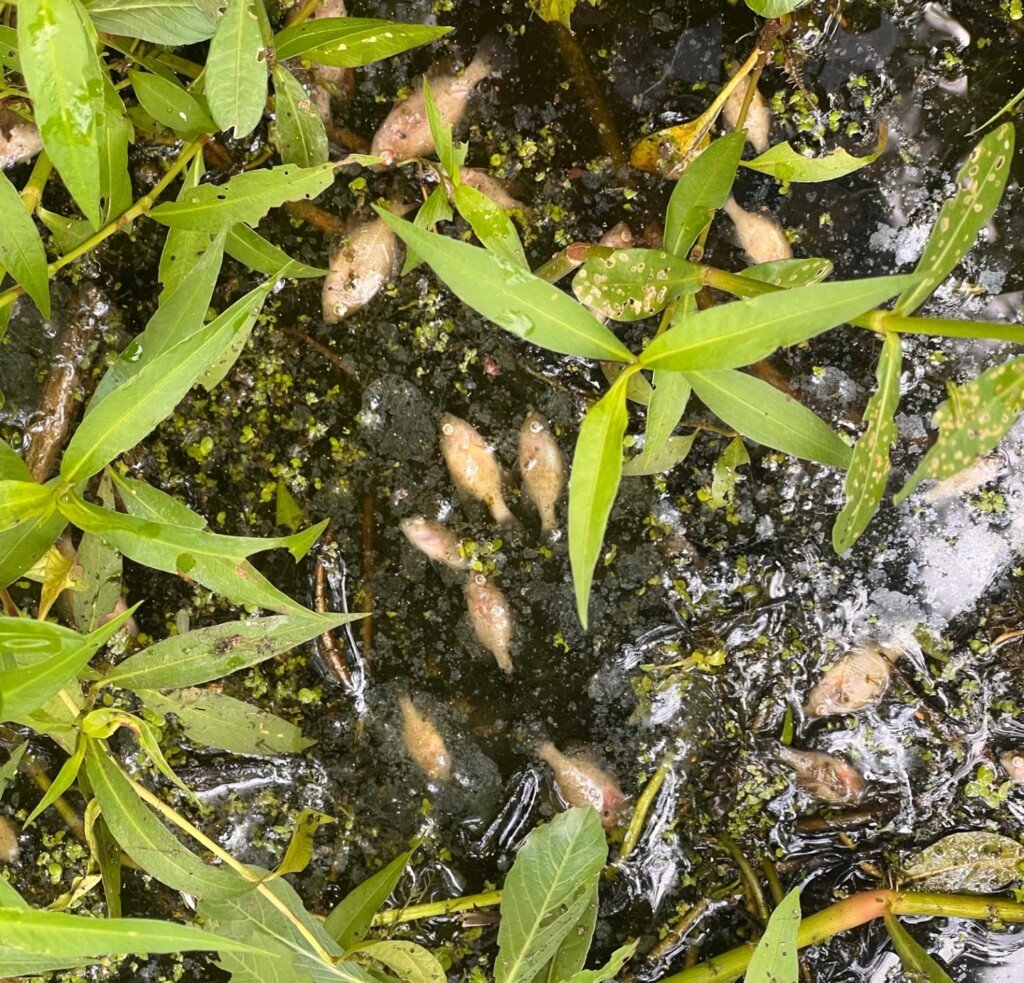Testing underway to determine cause of fish kill at Greenfield Lake

WILMINGTON, NC (WWAY) — Cape Fear River Watch and UNCW’s Aquatic Ecology Lab are testing the water at Greenfield Lake after hundreds of fish were found dead near the public boat ramp.
Rob Clark, the Water Quality Programs Manager with Cape Fear River Watch, says the Greenfield Lake boathouse is currently closed due to the fish kill.
Clark says the dead fish make up all different sizes and species.
“If you have a fish kill with a singular species involved, it may be unique to that species but when it involves all species then it’s a cause for concern,” Clark said.
Cape Fear River Watch took pictures, water quality readings and bacteria samples. Results showed low levels of dissolved oxygen in the water, which creates conditions in which fish will die.
The boat ramp had levels as low as 0.5 milligrams per liter, which is a roughly 5% oxygen level, said Colleen Brown, a PhD student in the Aquatic Ecology Lab at UNCW.
Brown said they do monthly water quality sampling and went there Monday to take samples throughout the lake. Some areas had very low oxygen levels, while others did not. The area where Greenfield Lake does the boat rentals had oxygen levels at around 20%.
“We know there’s low dissolved oxygen in the water, the big question we’re asking is why, what’s going on?” Brown said.
It’s hard to pinpoint right now as to what caused the fish kill. One possibility is a harmful algal bloom.
“When algae are blooming, it produces oxygen… but when algae die, it absorbs oxygen and oxygen levels drop rapidly. We’re thinking this has something to do with the death of algal bloom,” Brown mentioned.
The big concern is to whether this is toxic, which would be a bigger issue for public health. More tests will be run to determine whether the algal bloom is a toxic producing species.
There’s also the question of runoff. The recent rain, combined with people fertilizing their lawns, could mean pollutants in the lake could have lead to the kill.
Brown said they should know by Monday night whether there are any toxins in the water. Those samples will then go through a thorough analysis on Friday.




